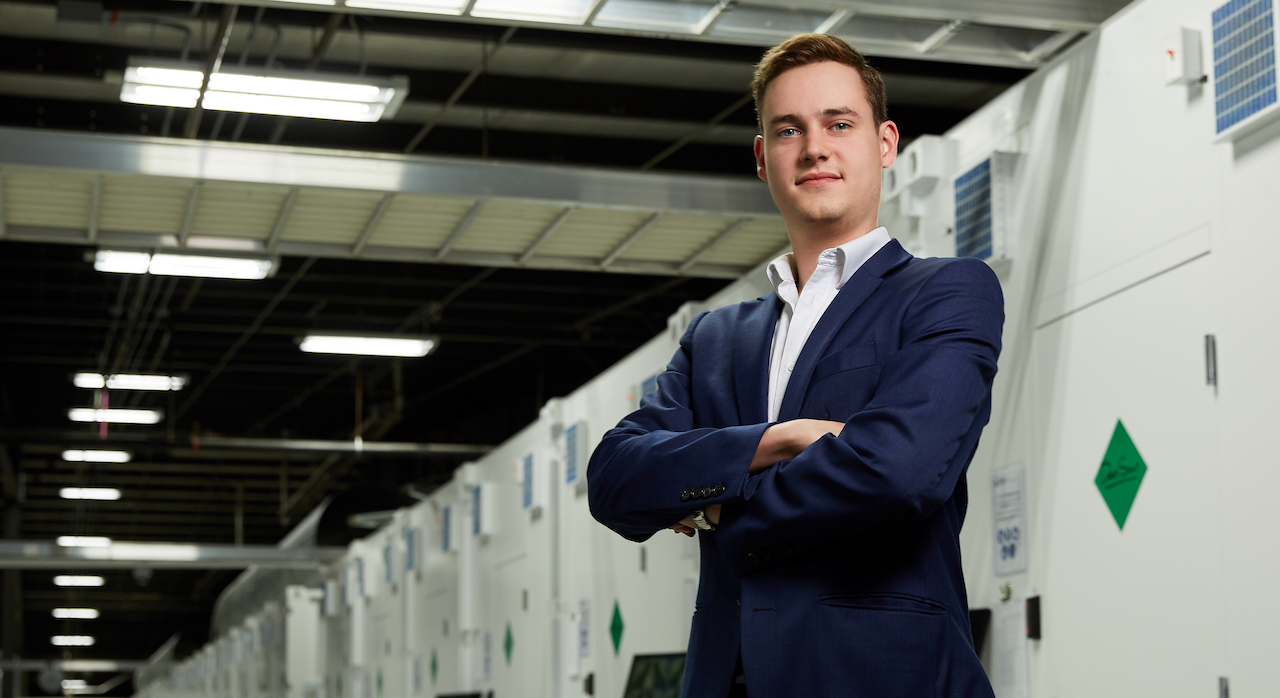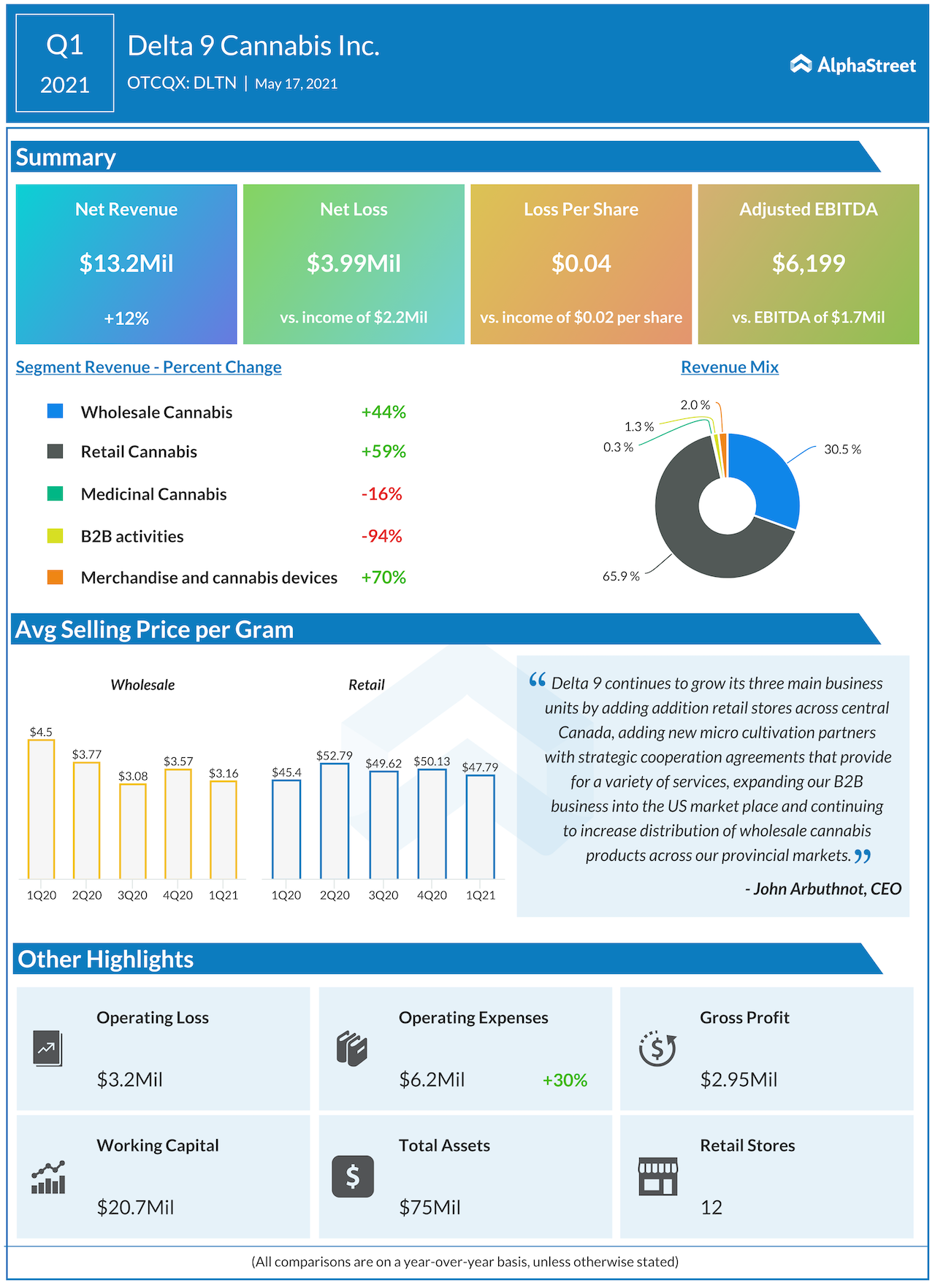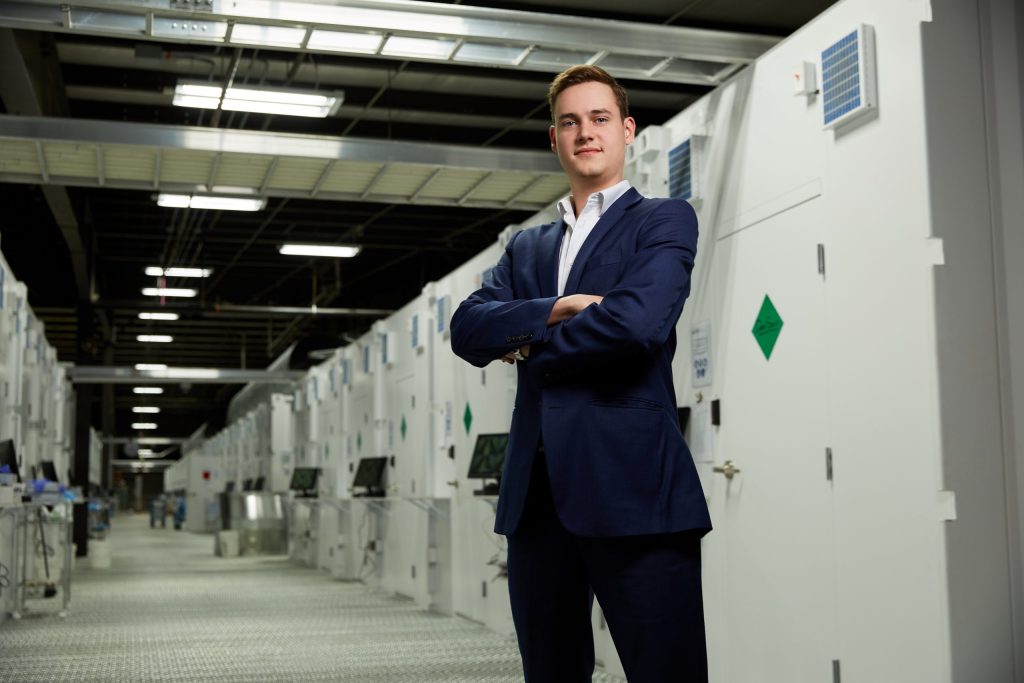
The second business vertical is retail. We currently operate 12 brick-and-mortar stores across Manitoba, Saskatchewan, and Alberta. We hope to be operating 20 stores by the end of this calendar year.
Third vertical is what we call our B2B segment, where we sell our proprietary growing platform – our Grow Pod — and provide consulting and licensing services to other cannabis businesses. The three segments give Delta 9 one of the most diversified approaches in Canadian industry.
Last year, the company’s revenue exceeded $52 million. So we have seen aggressive topline growth in the wake of legalization here in Canada. Given we are vertically integrated, we are often working with large competitors such as Canopy Growth, HEXO, Tilray, etc. All of these are brand partners of Delta 9.
Tell us about your Grow Pods
What really makes us unique on the cultivation side of the business is how we grow different than the big open greenhouse, the outdoor, and even the large indoor facilities. We grow in small modular units that we call Grow Pods. Effectively, they are retrofitted shipping containers. They are stackable and we grow on multiple levels within our facility.
A lot of the positioning here is around control of that environment. We are able to dial in the factors like temperature, humidity, light intensity, CO2 saturation – all this leads to a higher quality cannabis product. Our focus is on being in the premium segment, producing high potency, high-quality cannabis flower using this Grow Pods platform.
We currently have 297 of these Grow Pods licensed within our facility and under operation. We also sell these pods to third parties. We have now set up almost two dozen facilities across North America, mostly focused on Canada in the early evolution of that B2B business. We have now started to push that into the US as well. The Grow Pods are relatively inexpensive from a Capex perspective.

You are among the few players in the cannabis space that is proving to be profitable. Why is that so?
It’s been our focus around execution. We have seen consistent top-line growth from our three diversified business segments. We have also focused on cost controls and gross margins. Last year, we were able to see just EBITDA of about $3.8 million and free cash flow from operations at $1.5 million. So not only driving top-line growth but also seeing that we are able to contribute that to the bottom line in a meaningful way.
Our focus is on how we can demonstrate to investors who are seeking Canadian cannabis companies that we have a track record of profitability.
Do you expect the pricing pressure on cannabis to continue into the next few quarters?
It looks like we are starting to find some price stability in the industry. I think we have found a level that is sustainable. Obviously then the focus on production cost comes into play, where we need to focus on how do we produce cannabis for lower costs in order to make money at these levels of prices.
The retail side, likewise, we have seen more stores coming online, and you see prices come down as products have become more available in the wholesale market. A lot of this is companies like ourselves just trying to drive competition with that black market. We get competitive on price, on quality of products, and on the scope of products available in these retail stores. So we have looked to do our job in terms of driving competition and you now see huge volume of revenues now coming into our retail stores.
I think similar commentary to the wholesale industry. We found a level of price competition that is competitive with the black market and also starting to find stability that we are not going to see significant downward pressure.
ALSO READ: Safe-T CEO Shachar Daniel: Pandemic drove demand for secure remote access
How are you playing the edibles space?
Our approach on a lot of these 2.0 product segments has been a bit of wait-and-watch on how these markets develop. And then ultimately look to get into manufacturing those products or distributing them under our brand, but working with white-label suppliers to do that.
We currently carry a dried sift cannabis product. We are about to launch a pressed hash product into the market. Our next forays from here will be relaunching our ingestible oils line and our vape products line later into this year. That is working with a third-party manufacturer. From there, edibles and drinkables come to the forefront.
What’s your expansion strategy in the US and Canada
On the cultivation and manufacturing side, our facility is at full capacity here. That being said, there are still investments in the automation and group processes that we feel can drive our facility here from about 8,500 kilos per year currently to 12,000 kilos over the next 12-18 months.
From there, a lot of the focus is on retail. We are at 12 stores now and look to be operating 20 by the end of this calendar year. A large opportunity for us is to acquire existing operators that have customer base, revenue, and EBITDA profile.
On the B2B segment, a lot of our focus for expansion is now in the US. We are able to provide our Grow Pods, cultivation equipment, provide consultancy services even in advance of federal legalization. So we have dedicated sales folks purely working on the US markets. When legalization announcements occur, there’s going to be a build-out of millions of square feet of cultivation capacity and Delta 9 offers that turnkey platform.
ALSO READ Trxade CEO: Will see consistent margins ahead
ADVERTISEMENT
Should investors expect a dilution of shares to raise capital?
We look to fund our expansion from cash flow first. Insiders represent about 40% of the overall share ownership, so we are very sensitive to dilution. Obviously, whenever dilution comes into play, there has to be a use of proceeds from our end that will ultimately be accretive to shareholder value.
We are quite sensitive to that. But that being said, huge opportunities for expansion in the Canadian space and beyond, and we don’t want to miss out on those opportunities.
(Written by Arjun Vijay)
______
FOR MORE INSIGHTS INTO DELTA 9, READ THE LATEST EARNINGS CALL TRANSCRIPT
